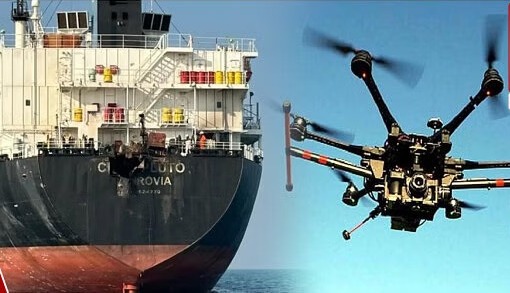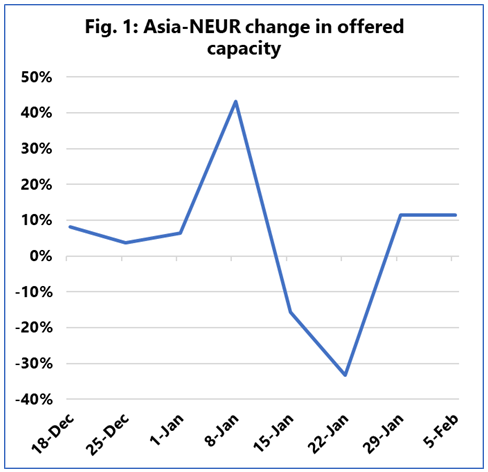
Sea-Intelligence sees major short-term impact of Red Sea crisis on container capacity
COPENHAGEN : The ocean carriers find their service networks extremely volatile and prone to rapid alterations, as the Red Sea crisis is still ongoing and the developments are changing daily.
The transit times will logically increase with the round of Africa routing and it will be a bit more than a week longer from Asia to North Europe, and up to two weeks longer into the Mediterranean.
“Whilst this is certainly a serious problem for many shippers, we should keep in mind that these disruptions are no way near to the ones caused during the pandemic,” pointed out Alan Murphy, CEO of Sea-Intelligence, who went on to add, “We [Sea-Intelligence] would like to make it abundantly clear that the current capacity outlook is fraught with a high degree of uncertainty, however, the present data shows that the shippers could expect a capacity crunch for Asian exports in the coming weeks.”

According to the latest Sea-Intelligence analysis, on Asia-North Europe, the impact is quite visible, due to a combination of some services being held back in departure from Asia in the short-term awaiting re-routing, and some services clearly arriving late into Asia, thereby causing a rapid shortfall in the middle weeks of January, with a steep capacity drop now expected for the week of 22 January.
The seeming capacity spike in late December/early January is more an artifact of origin delays and should be given less attention, while a similar trend is seen on both Asia-Mediterranean and Asia-North America East Coast, but a week earlier, according to the Danish analysts.
Murphy concluded, “That said, the temptation is to call this a disaster, but such language would be inappropriate when the current crisis is placed in the context of what the supply chains had to endure during the pandemic disruptions.”
